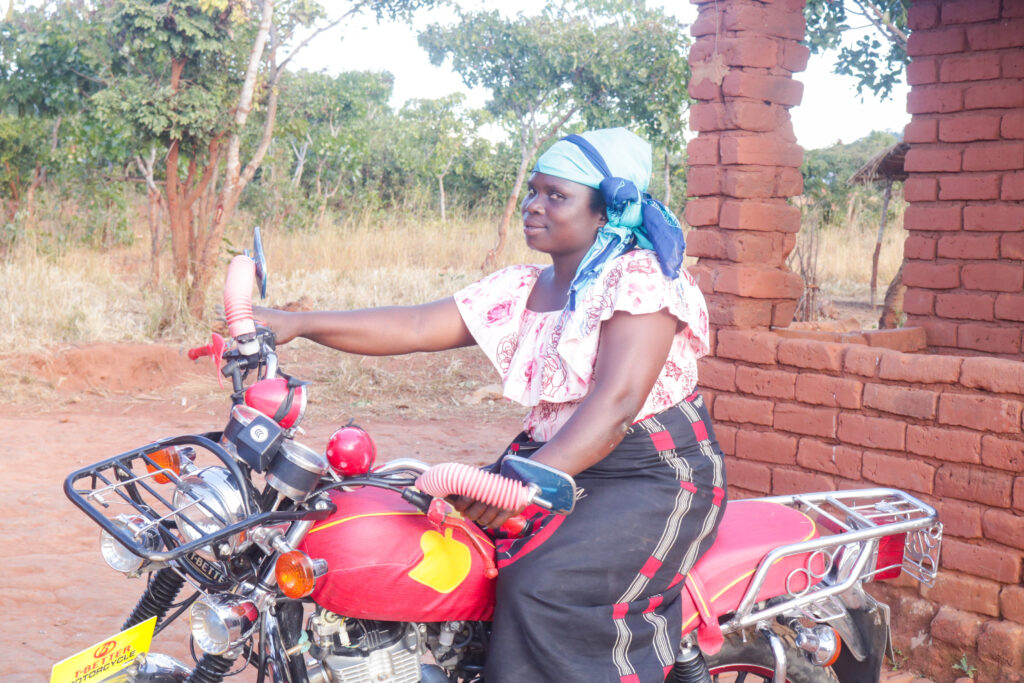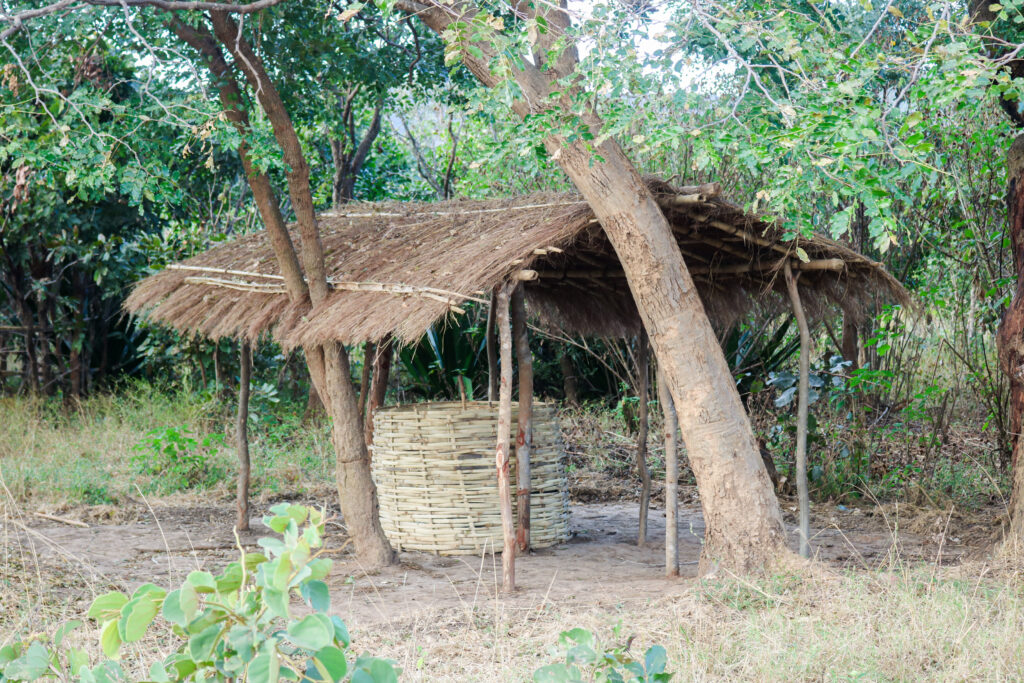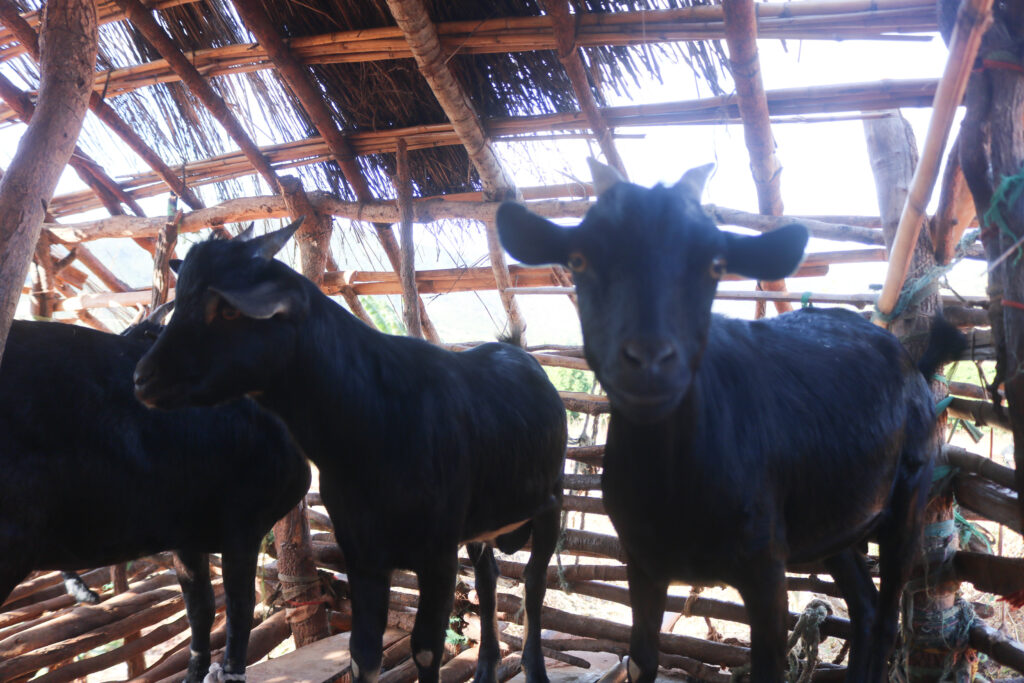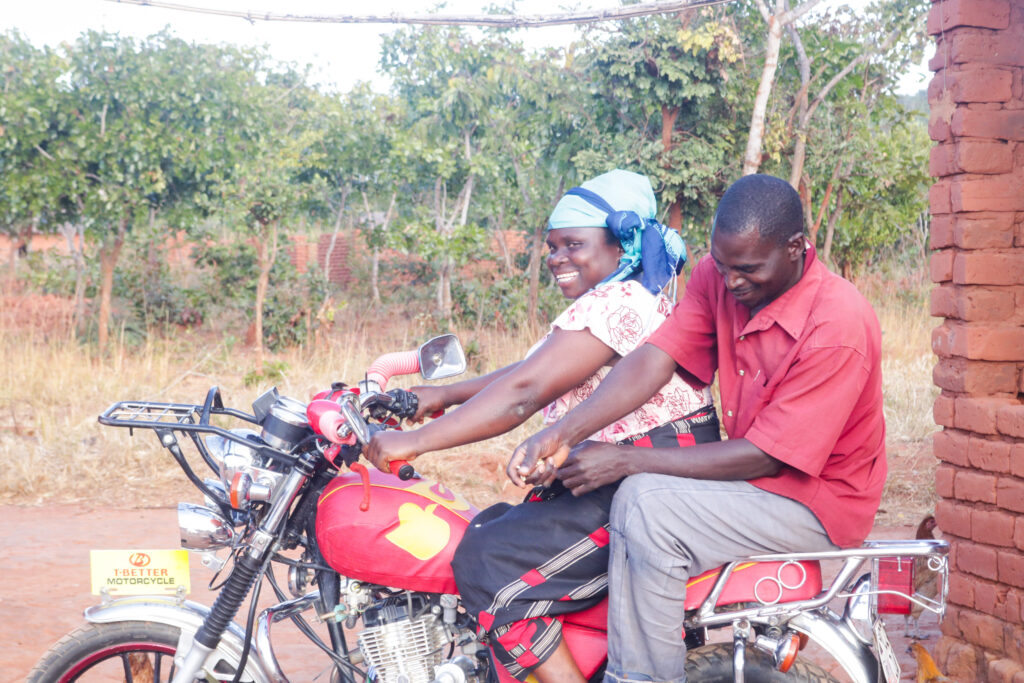NEEMA’S TRANSFORMATION: FROM FOOD INSECURITY TO FARM SUCCESS
By Noel Chatepa

“I joined CADECOM Karonga Dioceses’ Integrated Rural Development project in 2020 and we were trained in sustainable agriculture technologies. After the training’s, we were given soya bean, sunflower, groundnuts and maize seeds to use for seed multiplication. On top of that I was also given 3 goats as part of the goat pass-on program,” recalls Neema Mgala from Timanyane club in Chawa Village T/A Kameme in Chitipa.
“I cultivated all the crops I was given by following the agricultural technologies that we were taught and also made compost manure for application in my farm using the manure that I got from the goats,” she adds.

She says, “the project trained us in making Indore compost manure and this really helped me a lot as at that moment, I didn’t have the finances to buy fertilizer and at the same time, I was not sure if the compost manure would help, and this increased my fears as I didn’t want to end up leaving my children food insecure in the future”.
She says that before joining the Integrated Rural Development project, the high cost of fertilizers posed a significant challenge to her farming and together with uncertainty about the effectiveness of compost manure, she had fears of leaving her children vulnerable to food insecurity.
The project’s training in Indore compost manure proved to be an opportunity for Neema and by learning how to create nutrient-rich compost from readily available resources, she found a sustainable and cost-effective solution to her fertilizer problems

The financial benefits Neema has gained have been impressive. In just a few years, Neema’s income from farming has increased and she has invested her earnings in improving her family’s living conditions by purchasing home furniture and a motorcycle. She also bought chickens to add on as a source of manure for making Indore compost.
In 2020, Neema’s farm produced a total of 2,900 kg of crops (1,440 kg of maize, 200 kg of sunflower, and 1,260 kg of groundnuts). In 2023, her farm yield increased to 5,240 kg (2,800 kg of maize, 600 kg of sunflower, 900 kg of groundnuts, 140 kg of beans, and 800 kg of soybeans).

This improvement in crop yields also resulted in a good profit for Neema. Although in 2020, only MK95,226 was made from crop sales as a lot of her produce was consumed at home but by 2023, she managed to increase her crop sales income to MK1.603 million which shows a remarkable improvement.
In an effort to improve food security and income of small holder farmers, the Karonga Diocese Catholic Development Commission in Malawi (CADECOM) is implementing the Integrated Rural Development project in Chitipa with funding from Misereor.
